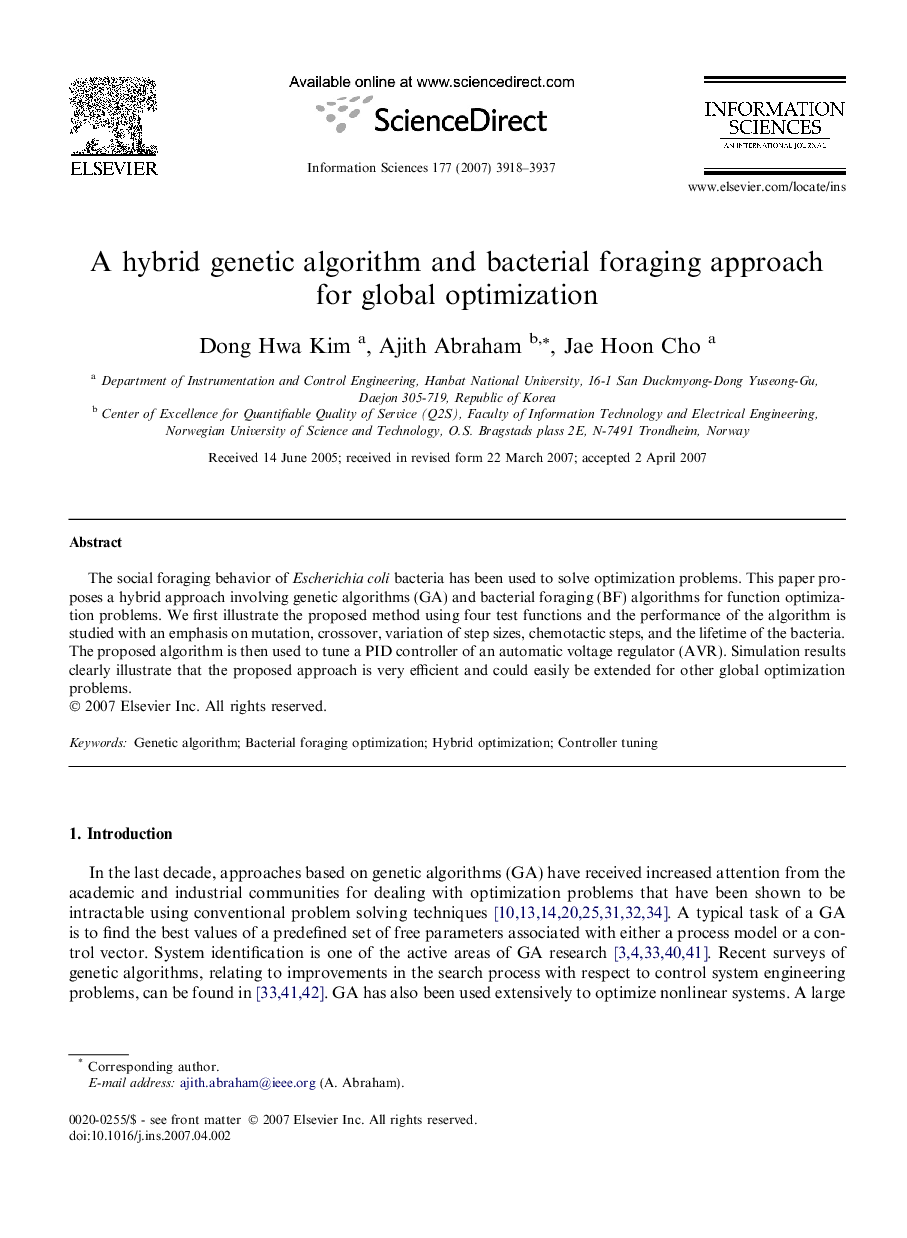| Article ID | Journal | Published Year | Pages | File Type |
|---|---|---|---|---|
| 396184 | Information Sciences | 2007 | 20 Pages |
Abstract
The social foraging behavior of Escherichia coli bacteria has been used to solve optimization problems. This paper proposes a hybrid approach involving genetic algorithms (GA) and bacterial foraging (BF) algorithms for function optimization problems. We first illustrate the proposed method using four test functions and the performance of the algorithm is studied with an emphasis on mutation, crossover, variation of step sizes, chemotactic steps, and the lifetime of the bacteria. The proposed algorithm is then used to tune a PID controller of an automatic voltage regulator (AVR). Simulation results clearly illustrate that the proposed approach is very efficient and could easily be extended for other global optimization problems.
Related Topics
Physical Sciences and Engineering
Computer Science
Artificial Intelligence
Authors
Dong Hwa Kim, Ajith Abraham, Jae Hoon Cho,
